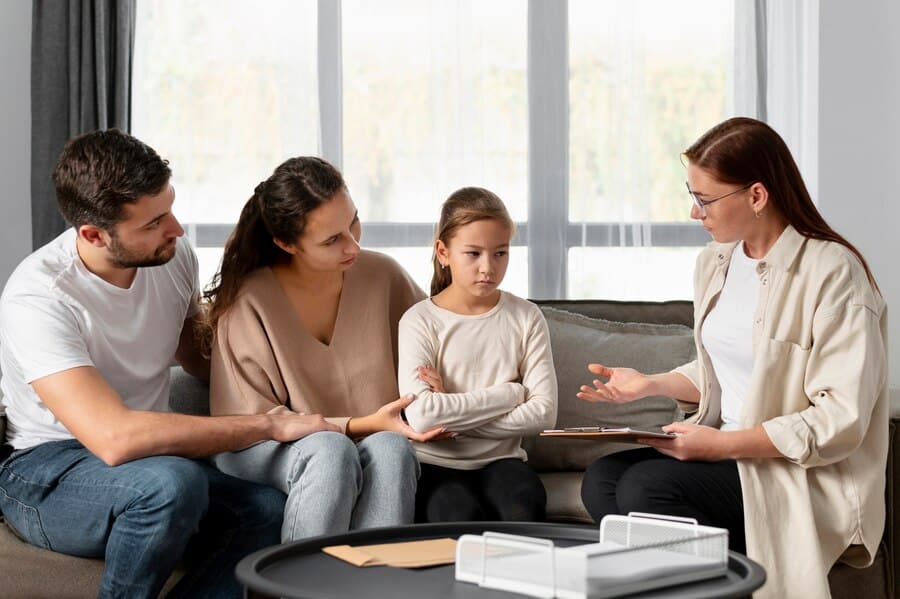Family and marital counselling are therapies aimed at improving relationships, but they focus on different dynamics and levels within a family unit.
Marital Counselling:
-
- Marital counselling, or couples therapy, primarily focuses on the relationship between two partners in a committed romantic or marital relationship.
- The primary goal is to address issues within the relationship, improve communication, resolve conflicts, and strengthen the bond between spouses.
- Common issues addressed in marital counselling include communication problems, infidelity, sexual difficulties, financial disagreements, and parenting conflicts.
- The therapist works with both partners to identify underlying issues, develop strategies for resolving conflicts, and enhance the overall quality of the relationship.
Family Counselling:
-
-
- On the other hand, family counselling addresses issues within the broader family system, including relationships between parents and children, siblings, and extended family members.
- It focuses on improving communication, resolving conflicts, and fostering healthy relationships among all family members.
- Family counselling may involve individual sessions with different family members or joint sessions with the entire family present.
- Common issues addressed in family counselling include parenting challenges, blended family issues, behavioural problems in children or adolescents, substance abuse, grief and loss, and family transitions such as divorce or remarriage.
- The therapist helps family members understand each other’s perspectives, identify patterns of interaction that may contribute to conflicts, and develop strategies for building more robust, supportive relationships within the family unit.
-
In summary
While marital counselling explicitly targets the relationship between spouses or partners, family counselling addresses the dynamics and relationships within the broader family system. Both forms of therapy aim to improve communication, resolve conflicts, and strengthen relationships, but they differ in scope and focus.
In some cases, couples may benefit from both forms of counselling. For instance, family counselling could be helpful if marital issues impact the children.
Are you feeling disconnected from your family?
Is conflict affecting your home life? Strengthen your family bonds and create a more favourable environment for everyone by scheduling a consultation today to explore whether family counselling is proper for you.
Book an appointment with Dr Nisha Khanna, a renowned relationship counsellor.



